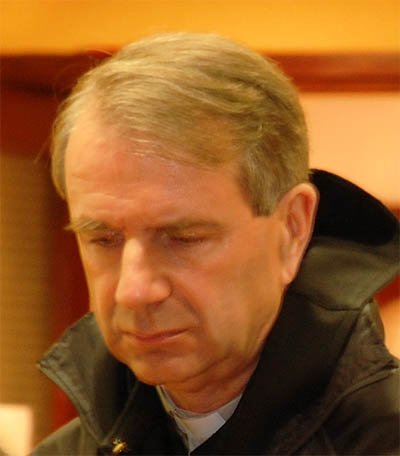‘Today, young Christians face a new reality for which they are unprepared’
 As the red-top papers might put it, gay weddings in church are the
As the red-top papers might put it, gay weddings in church are the
coalition Government’s latest big idea. More accurately, the Government Equalities Office is proposing legislation to allow religious buildings to host the registration of civil partnerships.Meanwhile, the people behind the Equal Love Campaign want both civil partnerships for heterosexual couples and full-blown marriages for homosexual couples.
Equality, homosexuality and marriage are now inextricably linked in public discussions but, as in ballroom dancing, it’s important to know who is leading. And the answer to that is equality. Once the decision was made to offer civil partnerships to homosexual couples on the basis of equality with heterosexual couples, then a direction of travel was set that leads inevitably to homosexual marriage. But in France, a different course was taken. There, civil partnerships are offered to any pair, such as a carer and the person he or she cares for, who want to secure certain rights in each other’s lives.
The Catholic Church supports civil partnerships on that basis – a different perspective to seeking equality on the basis that all sexual partnerships are the same.
Now all this raises once more the Catholic understanding of marriage as a unique vocation entrusted to a man and a woman. In my recently appointed role, I am sometimes asked if “vocation” in my job title means vocation in the narrow sense of those to the priesthood and religious life or the broader call of the baptised to a variety of vocations.
Since my mandate from the bishops is to foster a culture of vocation, this is an unnecessary distinction. To invite people to consider any specific vocation involves inviting people to look at others as well. But what is much less obvious is that if we want to promote all vocations, then we must promote each one in its own right with vigour and with a strong sense of its uniqueness.
Otherwise we fall into the trap of believing that equality is expressed by saying that all are the same. The Government is in danger of falling into that trap over arriage and other forms of partnership.
Within the Church, the era after the Second Vatican Council saw us falling into the same trap over vocations. People were rightly filled with a desire to give expression to the insights of the Constitution on the Church, Lumen Gentium, emphasising that lay vocations and religious vocations were of equal value in the Church. But some people inferred that the differences between these vocations no longer mattered.
Young Catholics picked up this underlying message and there emerged an attitude: if all vocations are the same, then what I do in life is not an important religious choice; since any moral way of life or job is fine, then God will bless whatever I choose. Alongside this, because some of them had been pressured into seminaries and novitiates, priests and Religious stopped actively proposing their way of life to the young. These same priests and Religious may well have assumed young Catholics would get married, and that’s a fine vocation too. And there is the flaw.
Today, young Christians, together with young believers of all faiths, face a new reality for which they are unprepared. Most of their contemporaries will live together first, have children out of wedlock and only later might they think of marrying, if at all. To create a culture of vocation in this context is to show that marriage, celibate priesthood, religious life and the other varieties of Christian life such as consecrated virginity are all vocations that demand our whole being and run counter to the prevailing culture.
The new ecclesial movements have created new bonds between people while other new relationships could well emerge; all these are and will be equally demanding. That is the sense in which they are equal. They are also marvelously different. The powerful movie, Of Gods and Men, tells the true story of a community of French Cistercian monks in Algeria. When kidnap by fundamentalists seems imminent, Br Christophe asks if this is his monastic vocation, to die in remote North Africa? He and the other monks answered yes with their lives. A distinctive way of life by which Christ calls us to selfless love: that is the vocation of every Christian.
- Vocations are calls to embark on exodus to Promised Land, pope says
- Spanish Olympic athlete to enter seminary after London games
- Discernment groups are an excellent idea: they remind us lay people that we have a vocation too.
- Call for Catholic schools to foster vocations
- “Open Your Hearts in Prayer” – Papal Nuncio Challenge to Young People at Invocation 2011


 Votes : 0
Votes : 0









